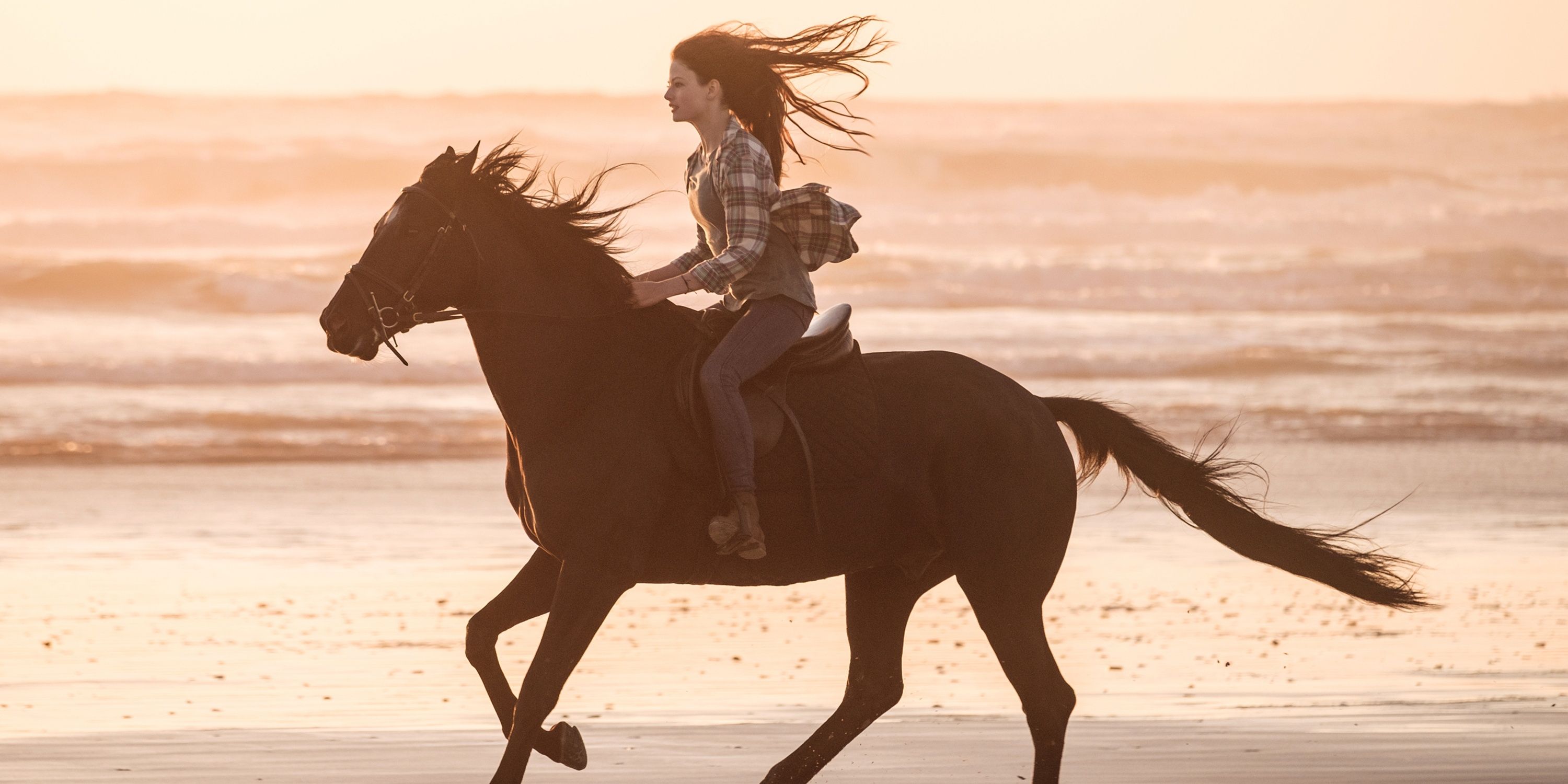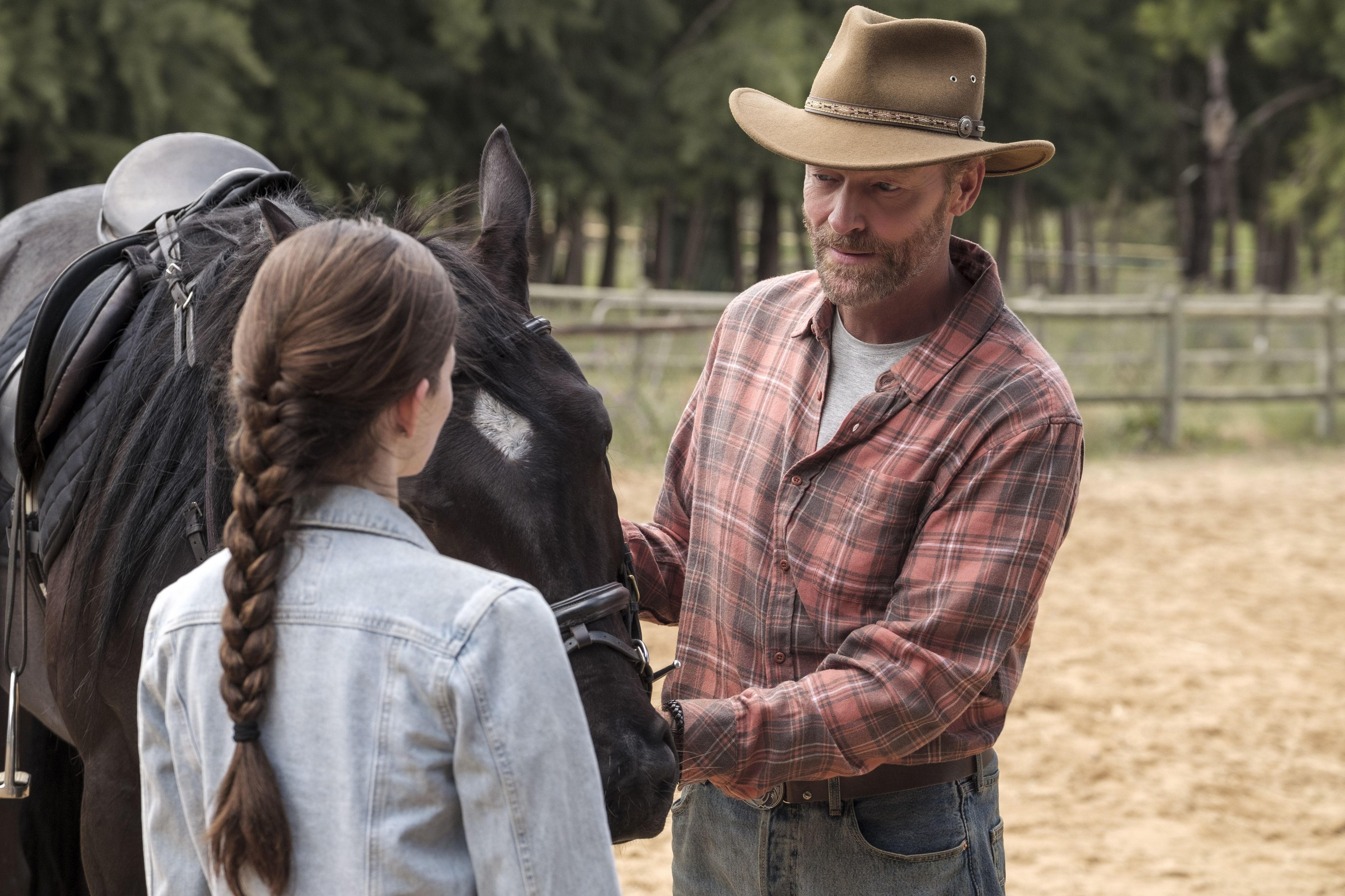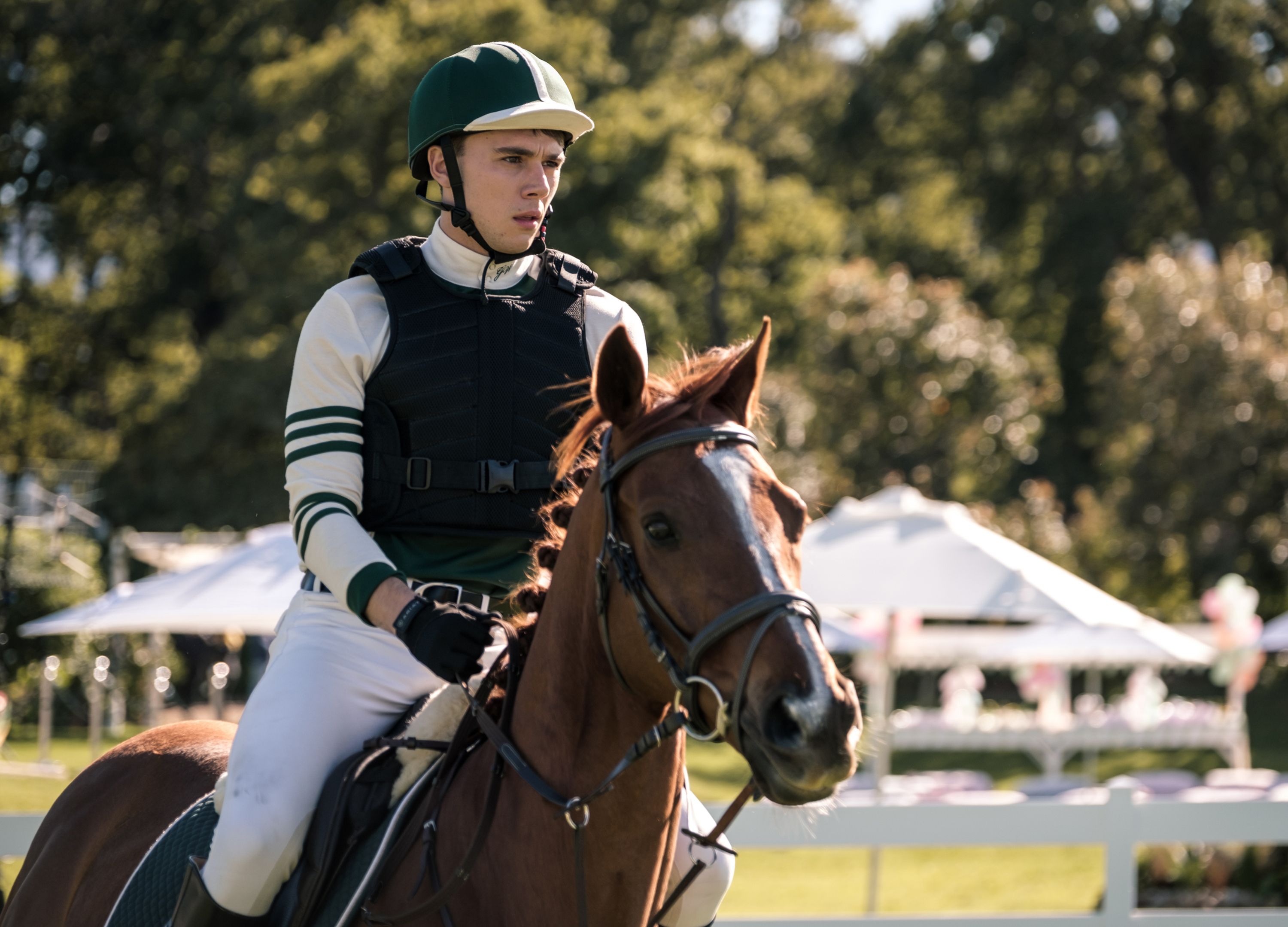Anna Sewell’s 1877 novel Black Beauty has been a staple of children’s literature for so long that it’s somewhat surprising that Disney hasn’t snatched it up before now. The new Disney+ feature film adaptation of Black Beauty fixes that, although writer-director Ashley Avis’ film is a fairly bland, sedate take on the story, unlikely to become a new perennial family favorite.
Black Beauty has been adapted into film numerous times over the course of nearly 100 years. However, there has yet to be a truly definitive take on the story. Caroline Thompson’s 1994 version, featuring Alan Cumming as the voice of the titular horse, comes closest, having steadily built up a following after its initial box-office failure. Still, there was plenty of room for Disney to put a distinctive stamp on the story, and that begins with changing the gender of the title character from male to female, here voiced by Kate Winslet in hushed tones, with an American accent.
Avis moves the setting of the story from England to the U.S. (although the movie was shot in South Africa), and she makes Beauty the horse into a mustang, running wild in Nevada. The opening scenes of the movie, featuring Winslet narrating over shots of actual wildlife, feel a bit like Disney’s successful line of nature documentaries, with their celebrity narrators personifying wild animals. Sewell’s novel is written from the horse’s point of view, and Avis largely sticks to that perspective, presenting most of the story via Beauty’s impressions and experiences.
Sewell’s novel is an episodic tale of the horse’s encounters with a range of people, and Avis keeps some of that same feel while also presenting a larger narrative about Beauty’s connection with troubled teenager Jo (Mackenzie Foy). That divided storytelling makes the movie seem even more disjointed, as the first hour or so focuses primarily on the relationship between Beauty and Jo, only for Jo to then disappear from the movie until the very end. There are some sweet moments between the horse and the girl, but Avis then rushes through Beauty’s relationships with her subsequent owners, cramming several movies’ worth of plot into the final act.
After being captured by horse traders, Beauty is sold to John Manly (Game of Thrones’ Iain Glen), who runs Birtwick Stables in what is meant to be upstate New York. Beauty is rebellious and stubborn, until she meets John’s niece, Jo, who has come to live with her uncle after losing her parents in a car accident. Avis leans hard on the parallels between Beauty and Jo, both of whom are resentful and angry after losing their families, and John even at one point applies the same horse training technique he uses on Beauty in an effort to tame Jo.
Jo’s teenage angst is pretty mild, though, and she soon forms a bond with Beauty, hoping to earn enough money to buy the horse when Birtwick hits financial troubles. Jo follows Beauty to the sprawling Earlshall Park when the horse is leased by spoiled, Veruca Salt-like teenager Georgina Winthrop (Fern Deacon), and Jo is hired as one of the estate’s grooms. Earlshall appears to be an entire British country estate imported to New York, with every character speaking in a posh British accent. At Earlshall, Beauty is roughly treated by Georgina, while Jo falls for Georgina’s sensitive brother George (Calam Lynch).
But Jo’s character development stops there, since Beauty gets sold once again, and the horse cycles through several owners over the course of the rest of the movie. Avis attempts to create some drama in a few scenes of Beauty working as a search-and-rescue horse in the mountains, but there isn’t a sufficient connection between her and her current owner Terry (Hakeem Kae-Kazim) to give those scenes any weight. The horse continues to dream of reuniting with Jo, but that just emphasizes what the movie loses without Foy on screen.
Foy makes Jo likable and brings a small amount of depth to the movie’s superficial character development, but the rest of the actors are less successful at bringing their characters to life. Glen’s terrible American accent makes John sound like he’s from a different region of the country in each scene, and Georgina and her mother (Claire Forlani) are cartoonish upper-crust villains. Later characters barely even register before Beauty moves on to a new home.
The South Africa-as-United States locations give the movie a generic, non-specific feel, and most of Avis’ direction is flat, TV-level work that would be more at home on the Disney Channel. So many scenes at Birtwick take place during the golden-hued “magic hour” that it almost feels like a joke, that the ranch exists in perpetual almost-twilight. Winslet does her best to give Beauty some personality, but her narration mostly feels disconnected from the action, like she’s doing a DVD commentary rather than participating in the movie.
Fans of Sewell’s novel may be disappointed with the extensive changes, and fans of previous film versions will probably find little to change their allegiances. There’s nothing here that makes a case for this as the definitive screen version that readers have been waiting for. Maybe the inevitable next filmmaker can finally get it right.
Starring Mackenzie Foy, Iain Glen, Calam Lynch, Fern Deacon, Claire Forlani, Hakeem Kae-Kazim and the voice of Kate Winslet, Black Beauty premieres Friday, Nov. 27 on Disney+.



